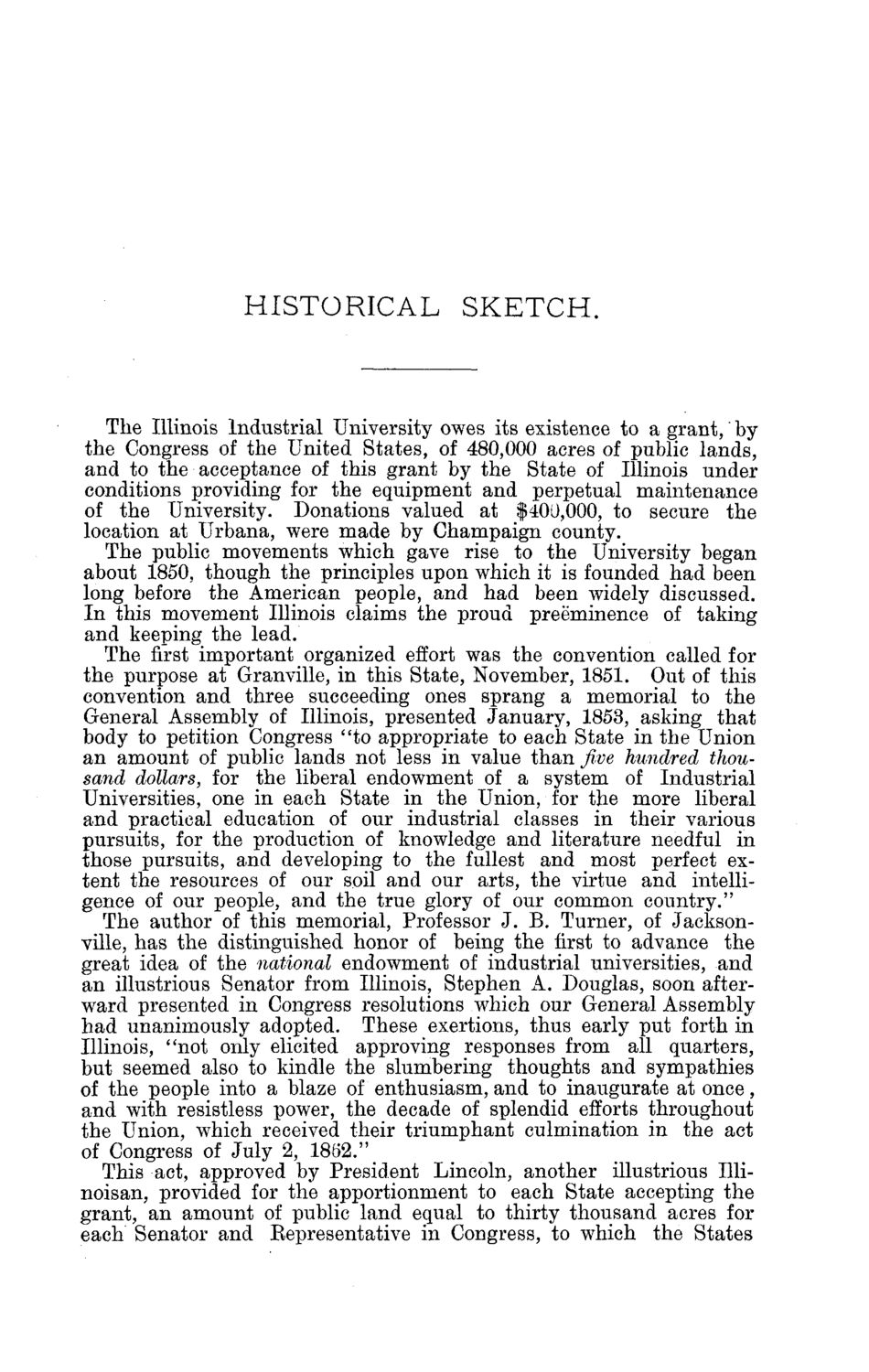| |
| |
Caption: Board of Trustees Minutes - 1880
This is a reduced-resolution page image for fast online browsing.

EXTRACTED TEXT FROM PAGE:
HISTORICAL SKETCH. The Illinois Industrial University owes its existence to a grant, by the Congress of the United States, of 480,000 acres of public lands, and to the acceptance of this grant by the State of Illinois under conditions providing for the equipment and perpetual maintenance of the University. Donations valued at $400,000, to secure the location at Urbana, were made by Champaign county. The public movements which gave rise to the University began about 1850, though the principles upon which it is founded had been long before the American people, and had been widely discussed. In this movement Illinois claims the proud preeminence of taking and keeping the lead. The first important organized effort was the convention called for the purpose at Granville, in this State, November, 1851. Out of this convention and three succeeding ones sprang a memorial to the General Assembly of Illinois, presented January, 1853, asking that body to petition Congress "to appropriate to each State in the Union an amount of public lands not less in value than five hundred thousand dollars, for the liberal endowment of a system of Industrial Universities, one in each State in the Union, for the more liberal and practical education of our industrial classes in their various pursuits, for the production of knowledge and literature needful in those pursuits, and developing to the fullest and most perfect extent the resources of our soil and our arts, the virtue and intelligence of our people, and the true glory of our common country." The author of this memorial, Professor J. B. Turner, of Jacksonville, has the distinguished honor of being the first to advance the great idea of the national endowment of industrial universities, and an illustrious Senator from Illinois, Stephen A. Douglas, soon afterward presented in Congress resolutions which our General Assembly had unanimously adopted. These exertions, thus early put forth in Illinois, "not only elicited approving responses from all quarters, but seemed also to kindle the slumbering thoughts and sympathies of the people into a blaze of enthusiasm, and to inaugurate at once, and with resistless power, the decade of splendid efforts throughout the Union, which received their triumphant culmination in the act of Congress of July 2, 1862." This act, approved by President Lincoln, another illustrious Illinoisan, provided for the apportionment to each State accepting the grant, an amount of public land equal to thirty thousand acres for each Senator and Eepresentative in Congress, to which the States
| |